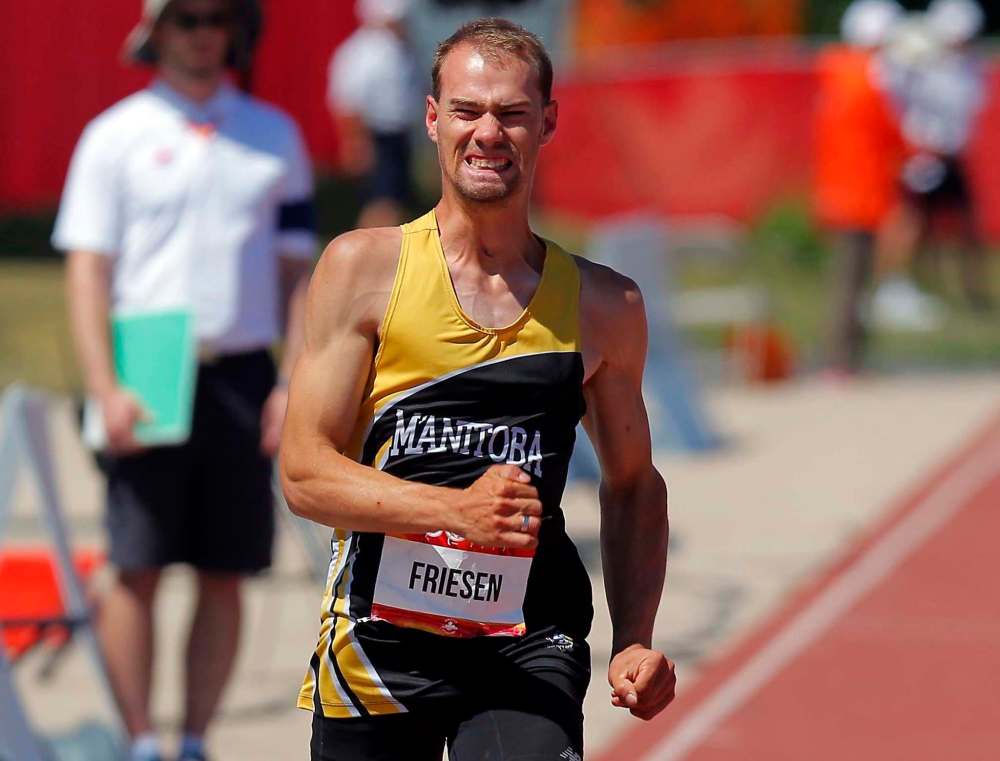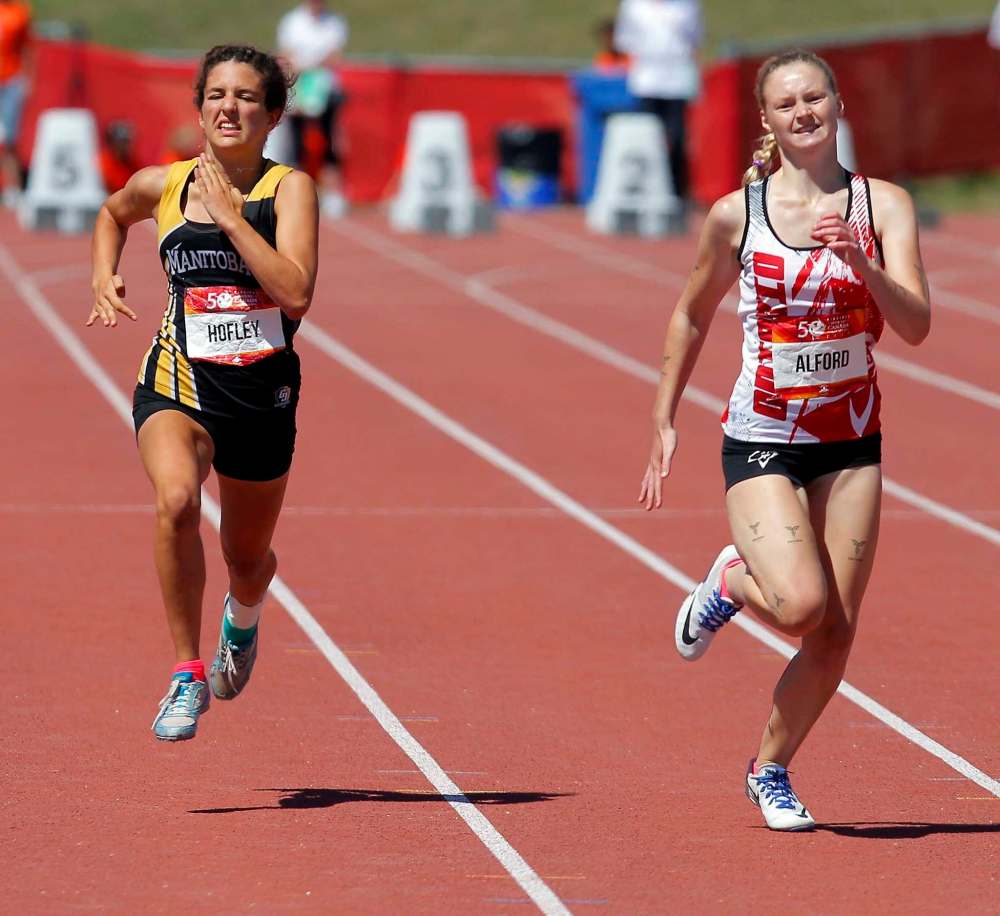Special Olympics athletes shining
Special Olympics athletes shining under hard sun
Advertisement
Read this article for free:
or
Already have an account? Log in here »
To continue reading, please subscribe:
Monthly Digital Subscription
$0 for the first 4 weeks*
- Enjoy unlimited reading on winnipegfreepress.com
- Read the E-Edition, our digital replica newspaper
- Access News Break, our award-winning app
- Play interactive puzzles
*No charge for 4 weeks then price increases to the regular rate of $19.95 plus GST every four weeks. Offer available to new and qualified returning subscribers only. Cancel any time.
Monthly Digital Subscription
$4.99/week*
- Enjoy unlimited reading on winnipegfreepress.com
- Read the E-Edition, our digital replica newspaper
- Access News Break, our award-winning app
- Play interactive puzzles
*Billed as $19.95 plus GST every four weeks. Cancel any time.
To continue reading, please subscribe:
Add Free Press access to your Brandon Sun subscription for only an additional
$1 for the first 4 weeks*
*Your next subscription payment will increase by $1.00 and you will be charged $16.99 plus GST for four weeks. After four weeks, your payment will increase to $23.99 plus GST every four weeks.
Read unlimited articles for free today:
or
Already have an account? Log in here »
Hey there, time traveller!
This article was published 03/08/2017 (3083 days ago), so information in it may no longer be current.
At birth, Caleb Friesen couldn’t breathe. His tongue blocked his trachea, a symptom of Robin syndrome. He had to be put on a breathing tube, which allowed the infant to inhale.
On Thursday, Friesen had no problem breathing, inhaling sharply as he raced in a Team Manitoba uniform down the rubber track at the University of Manitoba site for the Canada Summer Games.
He competed in the finals of the Special Olympics 100-metre dash, finishing fifth in the country with a time of 12.56 seconds.

It wasn’t his personal best (12.23), but he was happy with it.
“It doesn’t matter if I medal,” said Friesen, who now lives with a global developmental delay.
His mother, Rose, admires his attitude. The athlete from Grunthal is competitive and wants to do well, but he takes disappointments in stride, she said.
He trains for national competitions three times a week while also practising with a club team out of Steinbach. When he doesn’t have access to a track or coaches, he goes for runs.
“He’s always working towards improving,” Rose said.
Friesen called the whole experience of the Games “amazing.” He previously competed in the 2014 Special Olympics Summer Games in Vancouver and the 2015 Western Canada Games. He competes in the 200-metre dash and long jump as well as snowshoe races in the wintertime. Recreationally, he plays hockey and slow pitch. Sports lift Friesen up.
“It makes us feel equal with the rest of the world,” he said.
Friends, families, and fellow athletes stopped to give Friesen a quick high-five or “great race!” after his event. But outside the stadium, media coverage of the Special Olympics events have slid into the Canada Summer Games’ shadow.
“It’s kind of disappointing,” Rose said.
Wanting to win
When the gun went off in the girl’s 100-metre final, it took Kristy Alford just 13.79 seconds to sprint down the track to a gold medal.
Alford, 18, has just three years of track experience under her belt but coaches already call her technique “great.”
“She’s the most wonderful, coachable athlete. She actually listens, and does what you say,” said John Stevenson, the paraOlympic coach for Ontario.

Alford wants to win.
She ignored her therapist’s instructions to take it easy in the preliminary heats on account of a fresh calf strain. Alford ran her hardest and posted the best time of the day.
“That’s in her nature… She got a silver in the shot put, and she goes ‘I lost,'” laughed her dad, Don Alford.
But apart from the competition, the Games have given her relationships she cherishes. Growing up, Alford endured bullying, and she didn’t have friends on her hockey team. But at the Games, she’s a star — complete with a large following of people watching her via livestream back home in Innisfil, Ontario.
Running itself helps take away some of her anxiety. Alford has autism, and while competing on a national stage is nerve-wracking, it’s worth it.
“(It’s) showing everyone that people with problems can race,” she said.
stefanie.lasuik@freepress.mb.ca


